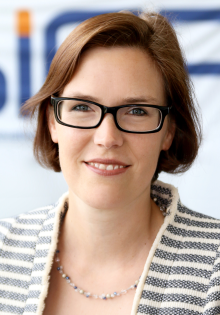Development of a VR Driving Simulator for Connected Mobility in Rural Regions
Motivation
In an increasingly connected world where rural regions are often dependent on private cars, the development of innovative solutions to improve the quality of life and accessibility in these areas is of crucial importance. New Mobility Paderborn (NeMo Paderborn) is an initiative that addresses this challenge and consists of more than 70 network partners. At the heart of NeMo Paderborn is the development and implementation of a swarm-like mobility system. Hubs are set up at central hubs as mobility-energy interfaces. Journeys are made individually as required and run without interruptions and without changing vehicles from the starting point to the destination. This concept will be well received by passengers due to its high level of acceptance. The region around Paderborn is ideally suited, as more renewable electricity is generated here than is consumed and intensive cooperation between local authorities, companies and universities is an established practice. Paderborn is thus becoming a role model for the mobility of tomorrow.
The aim of this thesis is to develop a VR driving simulator that offers users an immersive experience of NeMo's "Mobility on Demand" concept in rural regions. The implementation is based on the Unreal Engine with the Carla simulator.
Task description
• Development of a VR cab configurator: Development of an interface that allows users to configure their individual mobility requirements for a journey. These include start and destination, space requirements in the cab and route options.
• Integration of geographical data in Carla: For the visualization of the environment in which the cab moves, corresponding data is available in the form of "Cesium Batched 3D Tiles Data" files. This data must be made usable in the Unreal Engine (Carla) in order to create a custom map.
• Vehicle integration: Integration of the VR cab vehicle in Carla. Corresponding data is available
• Pass Through for Cabs: A real cab is available, which is to be made usable in the VR environment (or mixed reality environment) using "Pass Through". After the user has configured the journey in point 1, they should physically take a seat in the cab and carry out the journey from there.
• Interactive elements: During the VR ride, other Cabs and vehicles should be visible, which can interact depending on the user's configuration, e.g. passengers getting on and off.
Requirements
• Degree in computer science, computer engineering or a comparable field of study
• Strong expertise in the field of virtual reality and mixed reality
• Programming skills, preferably in C++ '
• Experience with the Unreal Engine (or the Carla simulator)
Contact
Tobias Hardes
Dr. Enes Yigitbas
Download
PDF

